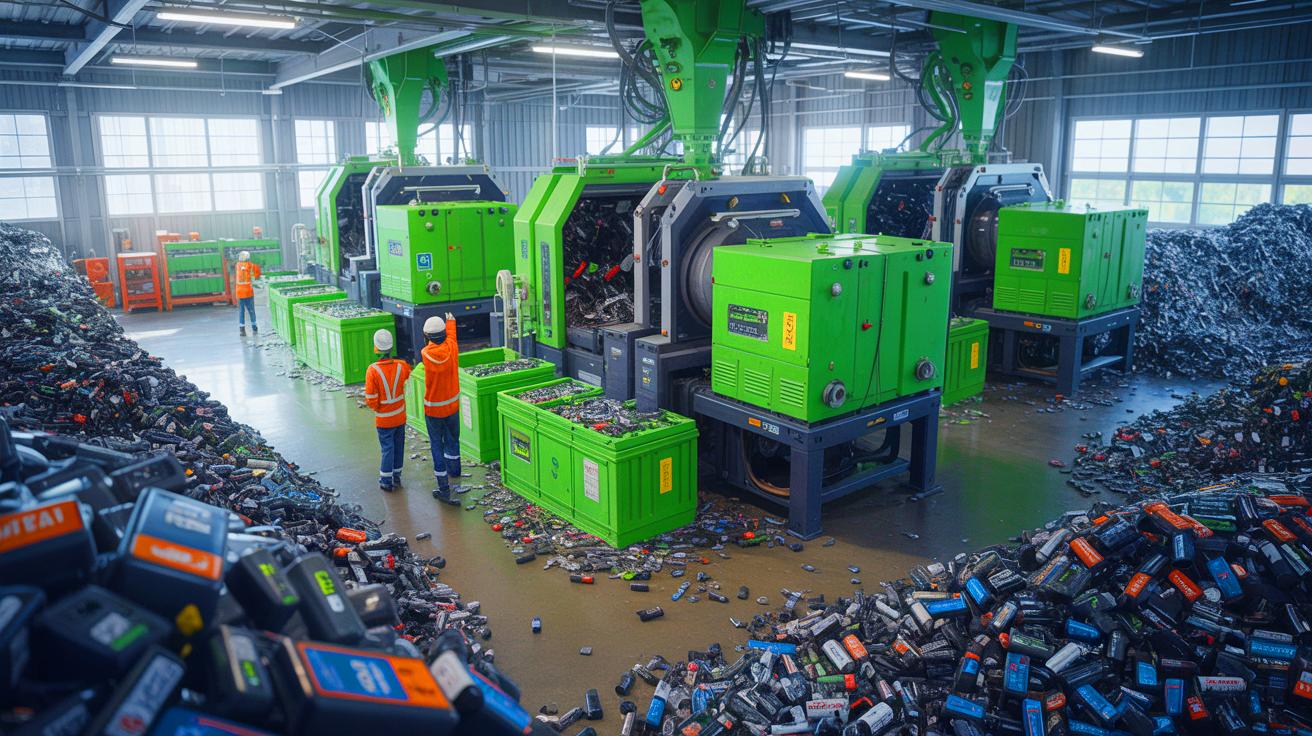- 🔋 Princeton NuEnergy launched the first U.S. commercial-scale battery recycling facility in Chester, South Carolina, achieving a recycling yield of over 97%.
- 💡 The facility, fully compliant with regulatory standards, is set to expand its capacity to 15,000 tons per annum by 2026.
- 🌱 PNE’s low-temperature plasma-assisted separation process reduces costs by 38% and has a 69% lower environmental footprint compared to conventional methods.
- 🔄 The company is advancing a circular battery economy, ensuring a secure U.S. supply chain from production to recycling and remanufacturing.
In a significant move to bolster the domestic supply chain, a New Jersey-based company, Princeton NuEnergy, has unveiled a groundbreaking battery recycling facility in Chester, South Carolina. This facility marks a milestone as the United States’ first commercial-scale Advanced Black Mass and battery-grade cathode active material production facility. With a remarkable recycling yield exceeding 97%, the site is set to play a pivotal role in regenerating and producing critical battery minerals domestically. As the push towards a circular battery economy intensifies, this facility stands at the forefront of innovation, heralding a new era in sustainable energy practices.
Recovery Yield Surpasses Industry Norms
Princeton NuEnergy’s new facility in Chester has set a new benchmark in battery materials recovery and manufacturing. According to Dr. Chao Yan, the company’s co-founder and CEO, the facility demonstrates that the United States can lead in this arena today, rather than years from now. With a recovery yield that surpasses industry norms, this site is not just another addition to the battery supply chain; it is a giant leap forward. The facility is fully compliant with regulatory standards and offers high-value downstream feedstock for battery production.
Looking ahead, Princeton NuEnergy plans to expand the facility’s capacity to 15,000 tons per annum (tpa) in 2026, with ambitions to scale up to 50,000 tpa as market demand grows. This expansion is a testament to the company’s commitment to strengthening the domestic critical materials supply chain, a critical component in advancing the circular battery economy. The facility’s success is poised to inspire further developments in the U.S. battery industry.
Direct Recycling Technologies
Princeton NuEnergy has secured over $55 million in grants and funding, allowing it to pioneer advancements in direct recycling technologies. The company operates a joint pilot facility in McKinney, Texas, aimed at further enhancing these capabilities. Nationally, PNE is establishing a network dedicated to closed-loop battery material recovery and production, positioning itself as a leader in this domain.
In Princeton, New Jersey, the company has launched the largest Materials Testing Center in the U.S. northeast. This center provides third-party validation and testing, accelerating battery manufacturing across the country. Notably, PNE’s low-temperature plasma-assisted separation process (LPAS) significantly reduces costs and environmental impacts compared to conventional methods. By achieving a 38% cost reduction and a 69% lower environmental footprint, PNE is setting a new standard for sustainable battery manufacturing.
Operations Advance Circular Battery Economy
Princeton NuEnergy’s operations are pivotal in advancing a circular battery economy, ensuring a secure U.S. battery supply chain. This approach keeps materials within the country, from production to end-of-life recycling and remanufacturing. The facility sources battery feedstock from various consumer and industrial goods, including mobile phones, computers, and electric vehicles.
The company’s patented LPAS process is cleaner, faster, and more sustainable than traditional recycling methods. Recovering nearly 97% of lithium-ion materials, this process not only enhances efficiency but also reduces costs and environmental impacts. Originating from research at Princeton University, PNE’s direct recycling process is poised to transform the future of battery production, offering a viable alternative to traditional methods and supporting the U.S. in achieving energy independence.
Capacity (tons per annum)
Princeton NuEnergy’s innovative approach to battery recycling is not just a technological breakthrough; it represents a strategic shift in how the U.S. can manage its resources and reduce reliance on foreign imports. As the company continues to expand and refine its operations, the implications for the domestic supply chain and the broader energy landscape are profound. How will these advancements reshape the future of energy production and supply in the United States?
This article is based on verified sources and supported by editorial technologies.
Did you like it? 4.6/5 (22)
